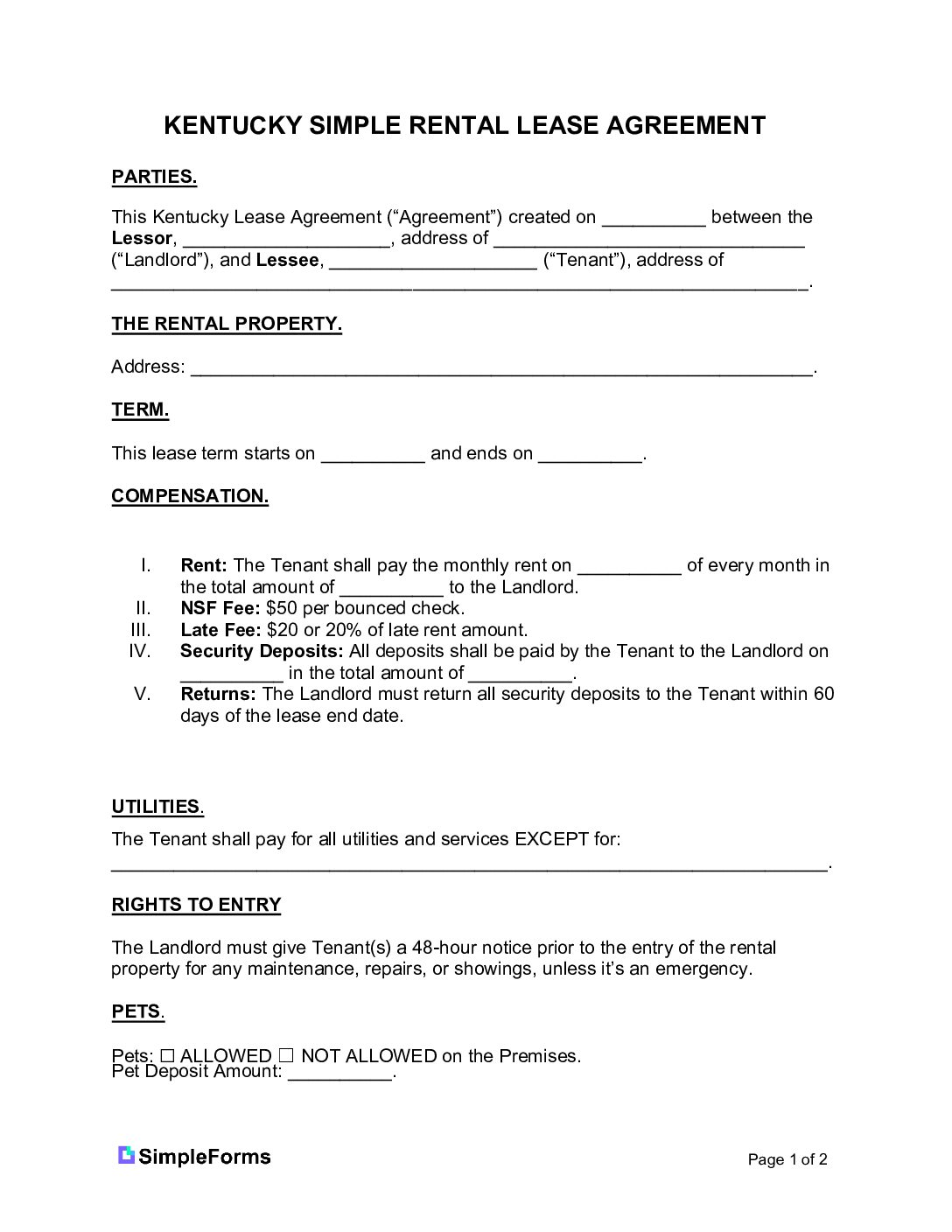A Kentucky lease agreement is a legal document used when leasing rental property. After viewing the property, the Tenant completes a rental application with their employment, credit, and background information. If approved, both parties negotiate and sign a lease agreement.
Rental Application – A Rental Application is a document landlords or property managers use to collect information from prospective tenants. The information provided in the application is used to verify the tenant’s identity, employment, credit score, rental history, and other relevant details necessary to determine their property eligibility.
Most Recent US Home Facts
- Population (2023): 334,914,895
- Median Households (2022): 125,736,353
- Median Household Income (2022): $75,149
- Owner-occupied Households (2022): 64.8%
Source: U.S. Census Bureau
Agreement Form Must Include the Following
Required Disclosures (4)
- Authorized Access
- Lead-Based Paint Disclosure Form
- Move-in Inspection Form
- Security Deposit Receipt
Security Deposit
Maximum – When authorizing the lease, the landlord may request any amount from the tenant as there is no set limit.
Return – In the event of a termination, the landlord is obligated to return the deposit to the tenant within 60 days. Failure by the tenant to provide a forwarding address within the stipulated time frame may result in the Landlord retaining the funds.
Return – In the event of a termination, the landlord is obligated to return the deposit to the tenant within 60 days. Failure by the tenant to provide a forwarding address within the stipulated time frame may result in the Landlord retaining the funds.
Source: § 383.580(7)
Paying Rent
Grace Period – Payment of rent is expected on the specific date stipulated in the lease agreement. Failure to do so may result in the landlord levying a penalty charge and serving a notice to vacate the premises the following day.
Maximum Late Fee – penalty is $20 or 20% of rent.
NSF Fee – The maximum fee a landlord can charge for a bad check is $50.
Source: § 514.040(4)(b)
Landlord Entry
Landlords must provide their tenants with notice of at least two (2) days before entering the rented premises for any non-emergency purpose. This provision ensures that tenants are able to plan and prepare accordingly, while also safeguarding their privacy and security.
Source: § 383.615

